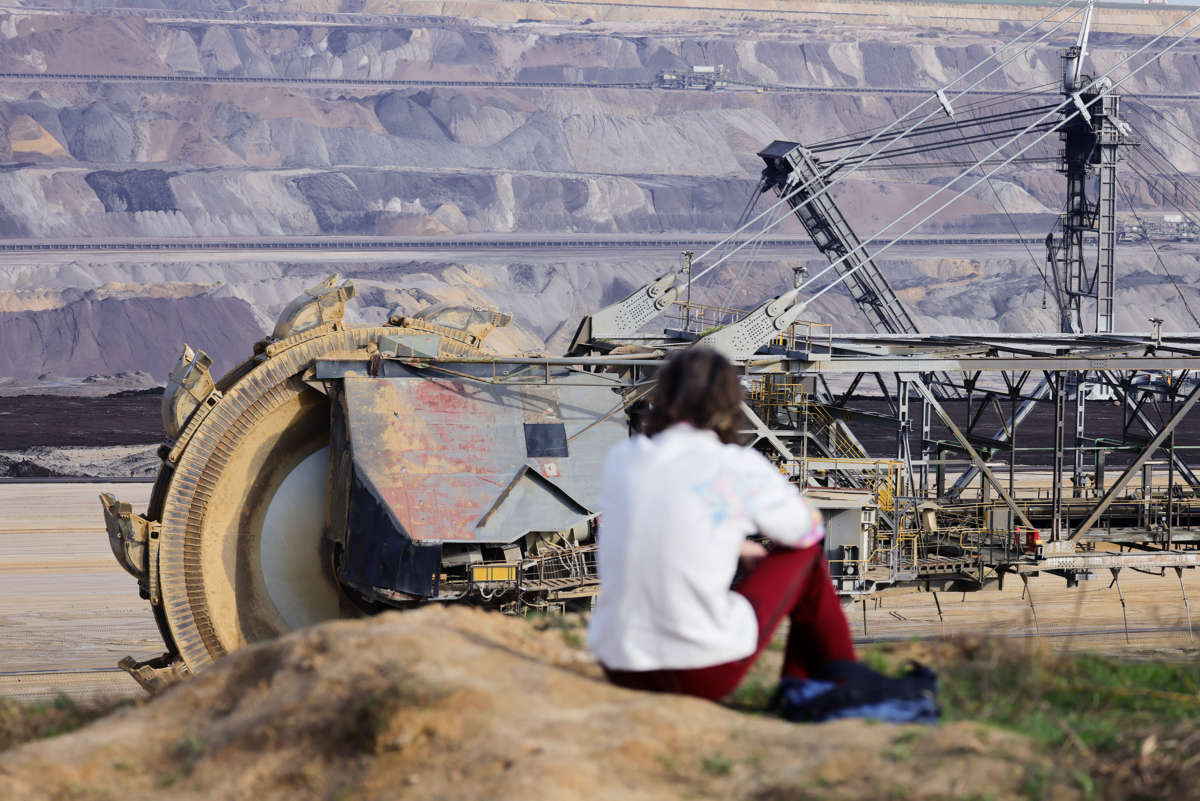Group of 20 nations and major multilateral development banks spent nearly twice as much financing international fossil fuel projects as they did on clean energy alternatives during a recent two-year period, a report published Tuesday by a pair of green groups revealed.
Oil Change International and Friends of the Earth U.S., along with dozens of collaborating climate and environmental justice groups, found that from 2019 to 2021, members of the G20 and multilateral development banks (MDBs) including the World Bank and International Monetary Fund (IMF) “provided at least $55 billion per year in international public finance for oil, gas, and coal,” an amount “almost two times more than their support for clean energy, which averaged only $29 billion per year.”
“This support directly counters G20 countries’ commitment to align financial flows to 1.5°C under the Paris agreement, as well as their 2009 commitment to phase out fossil fuel subsidies,” the publication continues. “This international public finance has an outsized impact on global energy systems, because it can offer government-backed credit ratings, is often provided at below-market rates, comes with large research and technical capacity, and signals broader government priorities.”
“Right now,” the report notes, “G20 countries and MDBs are overwhelmingly using their international public finance to prop up fossil fuel companies and prolong the fossil fuel era.”
💸Just Released💸 New report from @PriceOfOil & @FoE_US reveals #G20 countries have provided at least $165 billion in public finance to oil, gas, & coal projects since 2019.
Read on for why we’re at a crossroads on the path to #StopFundingFossils ⏰⏰⏰➡️ https://t.co/NBSXukFU43 pic.twitter.com/2utDfxPrqG
— Oil Change International (@PriceofOil) November 1, 2022
The new report comes just days ahead of the United Nations Climate Change Conference, or COP27, in Sharm El-Sheikh, Egypt. Last year, at COP26 in Glasgow, Scotland, dozens of countries and institutions including the United States pledged to end public financing of fossil fuel projects by 2022 and fully prioritize a shift to clean energy investment.
However, according to the new report, the United States has spent an average of $2.6 billion on fossil fuel investments, compared with just $358 million on renewables, from 2019 to 2021.
“As the world’s largest historical contributor to climate change, the United States has a duty to show true leadership by upholding President [Joe] Biden’s commitment to shift international public finance away from fossil fuels toward clean energy,” Kate DeAngelis, international finance program manager at Friends of the Earth U.S., said in a statement.
“Instead the U.S. Export-Import Bank and U.S. International Development Finance Corporation have bankrolled tens of billions of dollars to overseas fossil fuel projects that harm communities, kill workers and community members, and cause environmental destruction,” she added. “Biden’s failure to publish a comprehensive policy for international energy finance means the U.S. is breaking its promise rather than ending this deleterious financing.”
According to the report, export credit agencies “were the worst public finance actors, providing seven times more support for fossil fuels than clean energy.”
On Monday, The Guardian published a report that used Oil Change International’s Public Finance for Energy Database to detail how the U.S. government is pouring billions of dollars into fossil fuel projects in Africa while making relatively limited investments in renewable energy.
“International public finance is urgently needed to build a globally just energy transition. But it cannot play this critical role if G20 countries and MDBs continue to funnel $55 billion annually into climate-wrecking fossil fuel projects,” Claire O’Manique, one of the new report’s lead authors and Oil Change International’s public finance analyst, said in a statement.
“The climate movement will continue to hold wealthy countries accountable for their role in funding the climate crisis, and demand they move first and fastest to phase out their fossil fuel production, stop funding fossils, and pay their fair share of a globally just energy transition,” she added. “It is well past time that public finance dollars are spent to remedy fossil fuel colonialism by funding real solutions.”
Speaking against the authoritarian crackdown
In the midst of a nationwide attack on civil liberties, Truthout urgently needs your help.
Journalism is a critical tool in the fight against Trump and his extremist agenda. The right wing knows this — that’s why they’ve taken over many legacy media publications.
But we won’t let truth be replaced by propaganda. As the Trump administration works to silence dissent, please support nonprofit independent journalism. Truthout is almost entirely funded by individual giving, so a one-time or monthly donation goes a long way. Click below to sustain our work.
